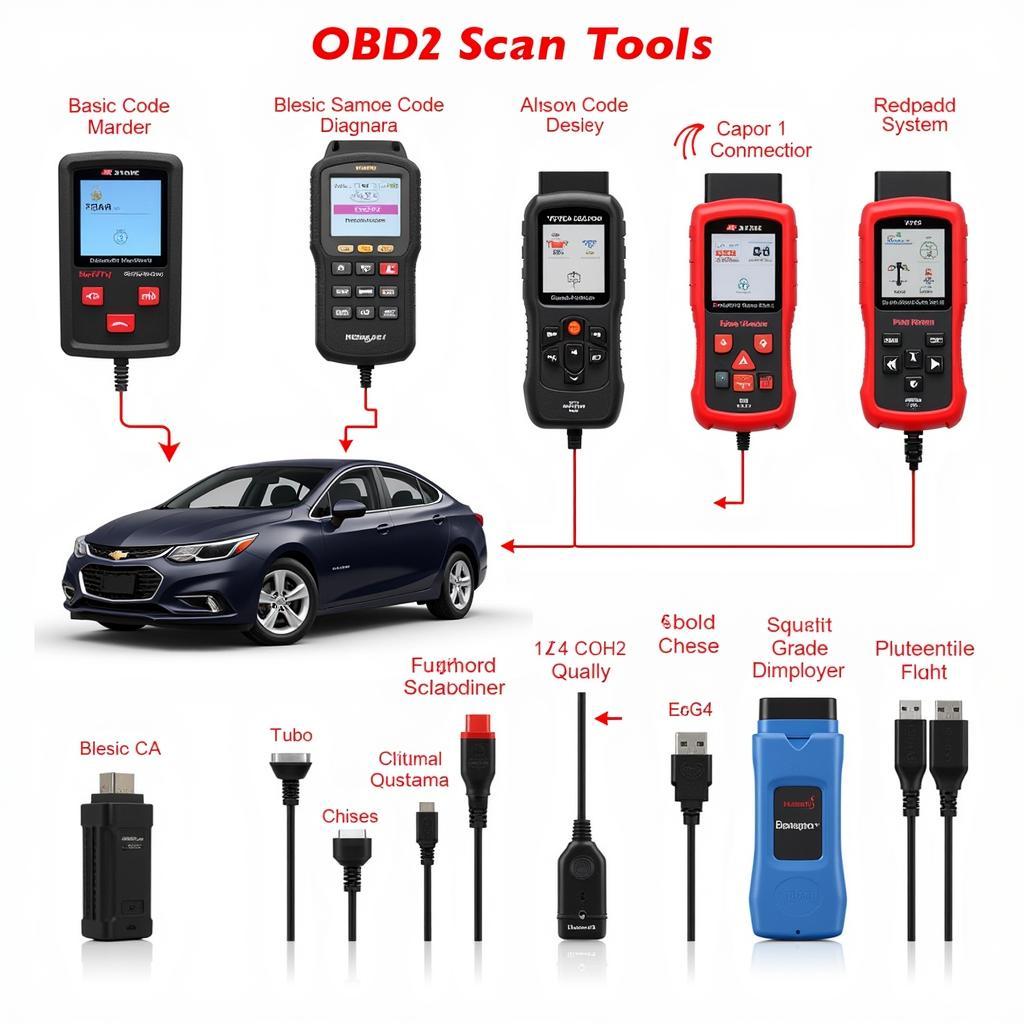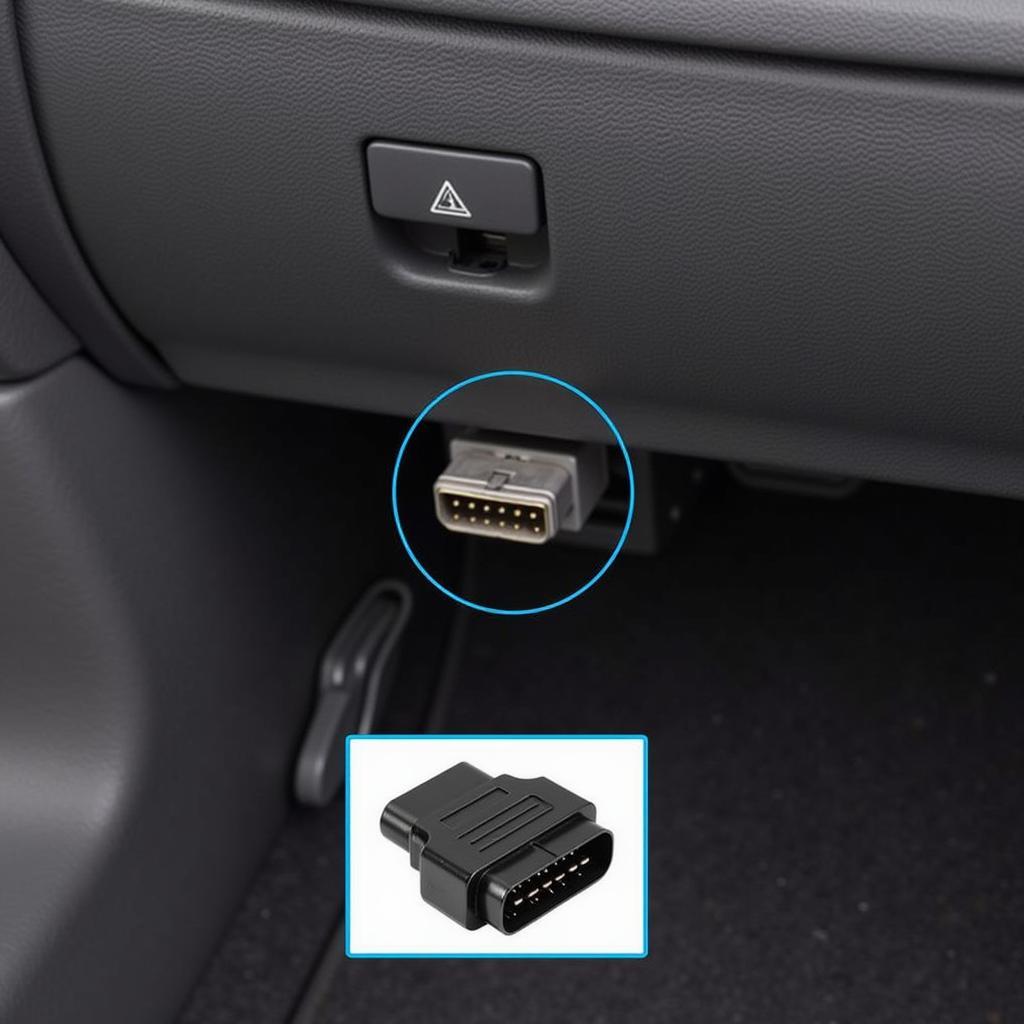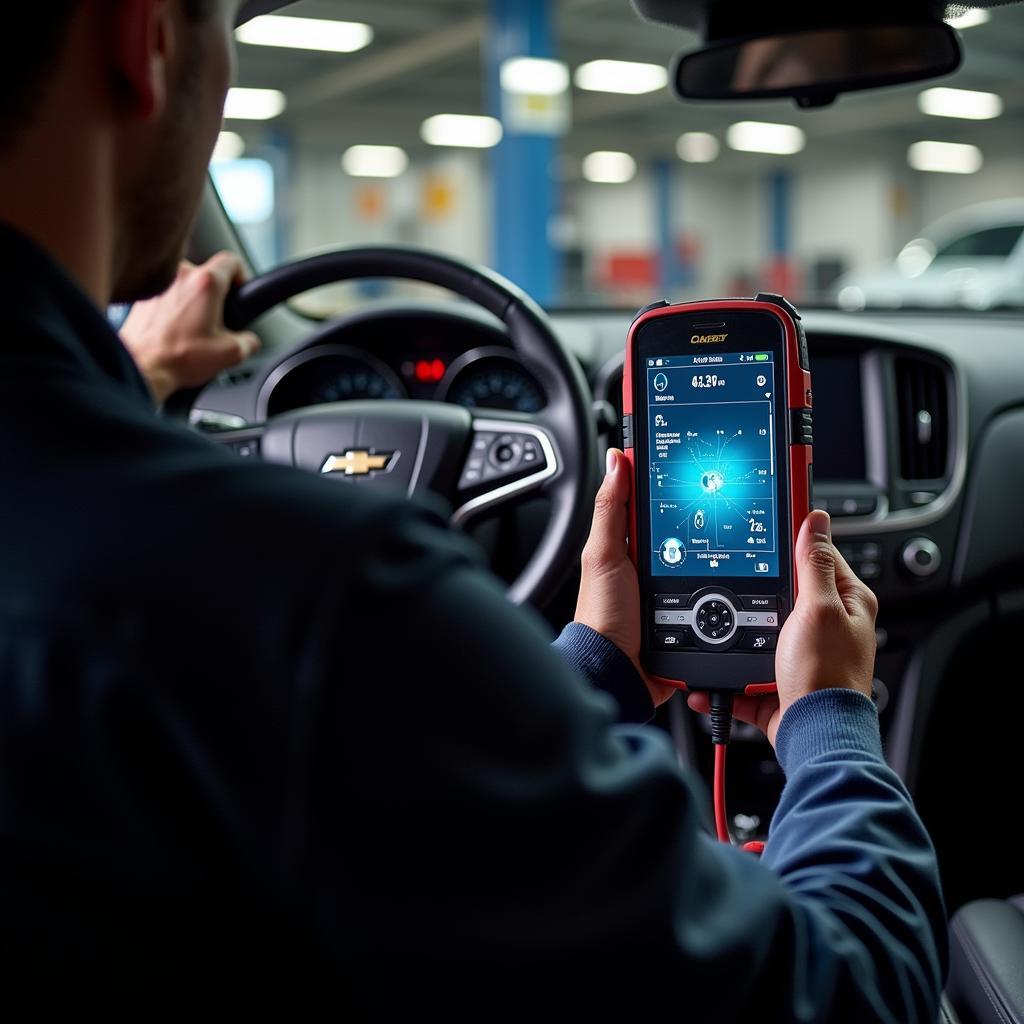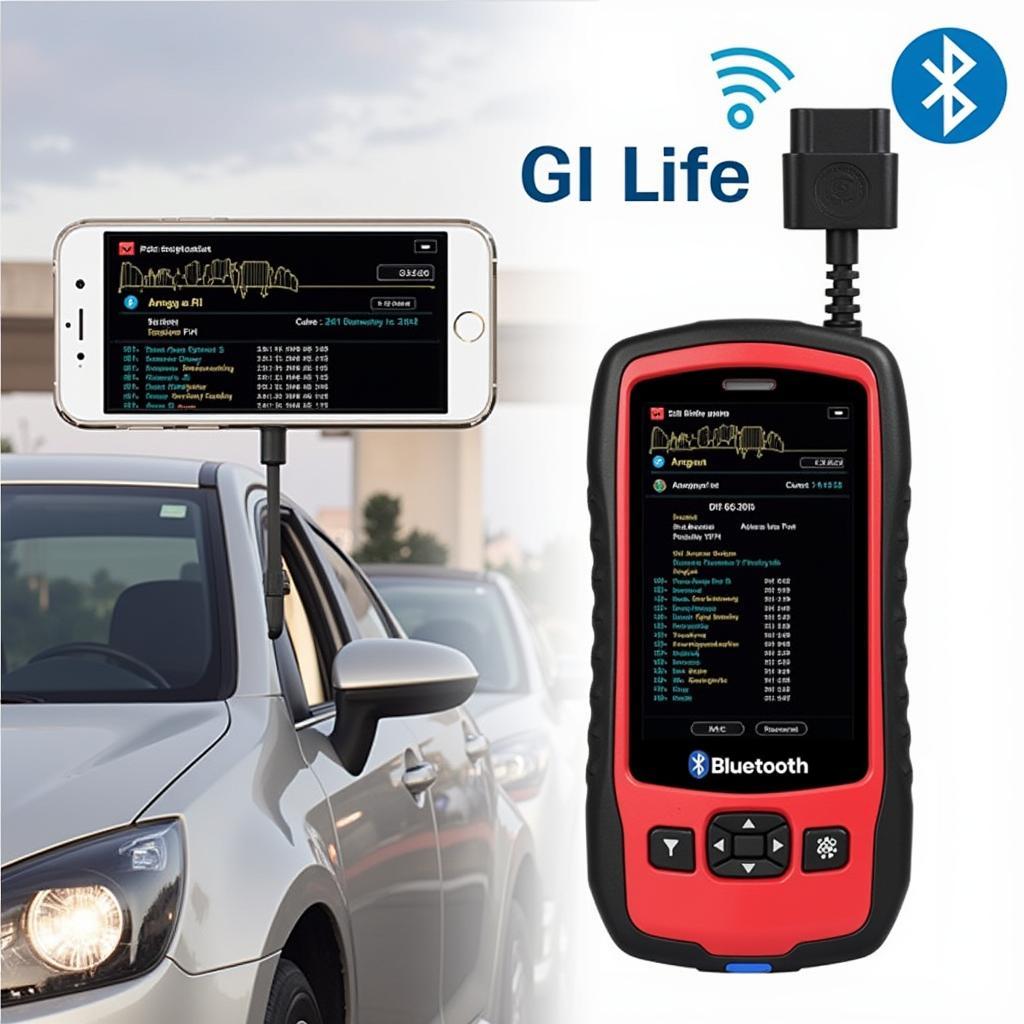A Chevrolet Cruze Scan Tool is essential for diagnosing and troubleshooting car problems, saving you time and money. This guide explores everything you need to know about selecting and using the best scan tool for your Chevrolet Cruze, from understanding basic OBD-II codes to advanced diagnostics.
Understanding Your Chevrolet Cruze’s Needs
Before diving into the world of scan tools, it’s crucial to understand what your Cruze needs. Different model years have varying diagnostic requirements, and the complexity of the problem you’re trying to solve will dictate the type of scan tool required. Are you just checking for a check engine light, or are you delving into more complex issues like transmission problems or ABS faults? Knowing your needs will help narrow down your choices.
Chevrolet Cruze Scan Tool Types: From Basic to Professional
There are several types of Chevrolet Cruze scan tools available, ranging from simple code readers to advanced professional-grade diagnostic systems. Let’s break down the options:
- Basic Code Readers: These affordable devices read and clear basic OBD-II codes, providing a starting point for diagnosing check engine lights. They are ideal for DIYers tackling simple issues.
- Enhanced Code Readers: Offering more functionality than basic code readers, these tools provide live data streaming, freeze frame data, and some bidirectional control capabilities. This allows for more in-depth analysis of sensor data and limited component testing.
- Professional Scan Tools: Designed for professional mechanics and serious DIYers, these tools offer comprehensive diagnostic capabilities, including advanced coding, programming, and access to manufacturer-specific data. They are a significant investment but offer the most complete diagnostic solution.
 Chevrolet Cruze OBD2 Scan Tools
Chevrolet Cruze OBD2 Scan Tools
Choosing the Best Chevrolet Cruze Scan Tool for You
The “best” scan tool depends on your individual needs and budget. Consider the following factors:
- Frequency of Use: If you only occasionally need a scan tool, a basic code reader may suffice. For frequent use, an enhanced code reader or professional scan tool is a better investment.
- Technical Skills: If you’re not comfortable with advanced diagnostic procedures, a user-friendly code reader with clear instructions is a good choice. Professional mechanics and experienced DIYers will appreciate the advanced features of a professional scan tool.
- Budget: Scan tools range in price from under $20 to several thousand dollars. Set a budget beforehand to narrow down your options.
- Specific Needs: Do you need to perform advanced functions like coding, programming, or bidirectional control? If so, a professional-grade scan tool is essential.
What if My Chevrolet Cruze Scan Tool Isn’t Working?
Troubleshooting a malfunctioning scan tool can be frustrating. Here’s a quick checklist:
- Check Connections: Ensure the scan tool is properly connected to the OBD-II port and powered on.
- Verify Compatibility: Confirm the scan tool is compatible with your specific Chevrolet Cruze model year.
- Update Software: Outdated software can cause compatibility issues. Check the manufacturer’s website for updates.
- Contact Support: If all else fails, reach out to the scan tool manufacturer’s customer support for assistance.
 Chevrolet Cruze OBD2 Port Location
Chevrolet Cruze OBD2 Port Location
“A reliable scan tool is like having a mechanic in your pocket,” says John Smith, Senior Automotive Technician at Smith Automotive. “It empowers you to understand your car’s health and address issues promptly.”
Key Features to Look for in a Chevrolet Cruze Scan Tool
Beyond the basic functionality, consider these key features:
- Live Data Streaming: Monitor sensor data in real-time to diagnose intermittent problems and understand how your car is performing.
- ABS and SRS Diagnostics: Access and clear ABS and SRS (airbag) fault codes for enhanced safety and diagnostics.
- Bidirectional Control: Test components and actuators to pinpoint the root cause of issues.
- User-Friendly Interface: A clear and intuitive interface makes navigating the scan tool’s features easy.
 Professional Chevrolet Cruze Scan Tool in Use
Professional Chevrolet Cruze Scan Tool in Use
“Investing in a quality scan tool is an investment in your car’s longevity,” adds Jane Doe, Lead Diagnostic Technician at Doe Auto Repair. “It can save you from costly repairs down the road.”
Conclusion
Choosing the right Chevrolet Cruze scan tool is essential for maintaining your vehicle and addressing problems effectively. By understanding your needs, researching the different types of scan tools available, and considering key features, you can make an informed decision that empowers you to take control of your car’s health. For any further assistance or to purchase a reliable Chevrolet Cruze scan tool, connect with us at CARW Workshop at +1 (641) 206-8880 or visit our office at 4 Villa Wy, Shoshoni, Wyoming, United States.
FAQ
-
Can I use any OBD-II scan tool on my Chevrolet Cruze? While most OBD-II scan tools will work for basic diagnostics, some advanced features may require a scan tool specifically designed for Chevrolet vehicles.
-
How often should I use a Chevrolet Cruze scan tool? Regularly scanning your Cruze, even when there are no apparent issues, can help identify potential problems early on.
-
What does a “check engine” light indicate? A check engine light can signal a variety of issues, from minor sensor malfunctions to more serious engine problems. A scan tool is necessary to determine the specific cause.
-
Can a Chevrolet Cruze scan tool reset the check engine light? Yes, most scan tools can clear diagnostic trouble codes (DTCs) and reset the check engine light after the issue has been addressed.
-
Is a professional scan tool worth the investment for a DIYer? If you are comfortable with advanced diagnostics and plan to work on your Cruze regularly, a professional scan tool can be a valuable investment.
-
Where can I find reliable information on Chevrolet Cruze diagnostic trouble codes? Reliable resources include online forums, repair manuals, and the scan tool manufacturer’s website.
-
What should I do if my scan tool isn’t reading any codes? Double-check the connections, verify compatibility, and try updating the scan tool’s software. If the issue persists, contact the manufacturer’s customer support.







